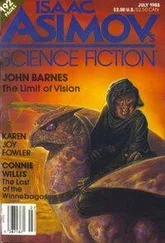14 The notes contained charming, often enigmatic sentiments such as, “Which shall it be—Geraniums or Tulips?” and “Go away—and Shut the door When—you Leave.”
15 See Halfwits and Imbeciles: Poetic Evidence of Emily Dickinson’s Opinion of Her Neighbors , by I. Smart, Intelligentsia Press, 1991.
16 Virtually everyone in Amherst kept a diary, containing entries such as “Always knew she’d turn out to be a great poet,” and “Full moon last night. Caught a glimpse of her out in her garden planting peas. Completely deranged.”
17 The inability of people to tell Orson Welles and H. G. Wells apart lends credence to Dickinson’s opinion of humanity. (See Footnote 15.)
18 Not the one at the beginning of the story, which everybody knows about, the one that practically landed on him in the middle of the book which everybody missed because they’d already turned off the radio and were out running up and down the streets screaming, “The end is here! The Martians are coming!”*
* Thus proving again that Emily was right in her assessment of the populace.
19 See Sound, Fury, and Frogs: Emily Dickinson’s Seminal Influence on William Faulkner , by W. Snopes, Yoknapatawpha Press, 1955.
20 She was, of course, already dead, which meant the damage they could inflict was probably minimal.
21 Which she considered a considerable threat. “If the butcher boy should come now, I would jump into the flour barrel,” *she wrote in 1873.
* If she was in the habit of doing this, it may account for her always appearing in white.
22 Particularly nonlinear differential equations.
23 See Lord Byron’s Don Juan: The Mastiff as Muse by C. Harold.
24 He didn’t like people, either. See “Mending Wall,” The Complete Works , Random House. Frost preferred barbed wire fences with spikes on top to walls.
25 See “Semiotic Subterfuge in Wordsworth’s ‘I Wandered Lonely as a Cloud’: A Dialectic Approach,” by N. Compos Mentis, Postmodern Press, 1984.
26 Sort of.
27 The word is either “read” or “heard” or possibly “pacemaker.”
28 Also pleats, tucks, ruching, flounces, frills, ruffles, and passementerie. *
* See Pockets as Political Statement: The Role of Clothing in Early Victorian Feminism , by E. and C. Pankhurst, Angry Women’s Press, 1978.
29 A good writer is never without pencil and paper.*
* Or laptop.
30 See “Posthumous Poems” in Literary Theories That Don’t Hold Water by H. Houdini.
31 Two years later, no longer quite so grief-stricken and thinking of all that lovely money, he dug her up and got them back.*
*I told you poets behaved badly.
32 Try it. No, really. “Be-e-e-cause I could not stop for Death, He kindly stopped for me-e-e.” See?*
*Not all of Dickinson’s poems can be sung to “The Yellow Rose of Texas.”** Numbers 2, 18, and 1411 can be sung to “The Itsy-Bitsy Spider.”
**Could her choice of tunes be a coded reference to the unfortunate Martian landing in Texas? See “The Night of the Cooters” by Howard Waldrop.
33 Normal to Ong, Nebraska.
34 See Freud.
35 Sort of.
36 The near-rhyme theory also explains why Dickinson responded with such fierceness when Thomas Wentworth Higginson changed “pearl” to “jewel.” She knew, as he could not, that the fate of the world might someday rest on her inability to rhyme.
37 For an intriguing possibility, see “The Literary Litterbug: Emily Dickinson’s Note-Dropping as a Response to Thoreau’s Environmentalism,” by P. Walden, Transcendentalist Review , 1990.
38 Number 187’s “awful rivet” is clearly a reference to the Martian cylinder. Number 258’s “There’s a certain slant of light” echoes Wells’s “blinding glare of vivid green light,” and its “affliction / Sent us of the air” obviously refers to the landing. Such allusions indicate that as many as fifty-five* of the poems were written at a later date than originally supposed, and that the entire chronology and numbering system of the poems needs to be reconsidered.
*Significantly enough, the age Emily Dickinson was when she died.
39 A holiday Dickinson did not celebrate because of its social nature, although she was spotted in 1881 lighting a cherry bomb on Mabel Dodd’s porch and running away.*
*Which may be why the Martian landing attracted so little attention. The Amherstodes may have assumed it was Em up to her old tricks again.
40 There is compelling evidence that the Martians, thwarted in New England, went to Long Island. This theory will be the subject of my next paper,* “The Green Light at the End of Daisy’s Dock: Evidence of Martian Invasion in F. Scott Fitzgerald’s The Great Gatsby .”
*I’m up for tenure.
Afterword for “The Soul Selects Her Own Society”

People are always surprised and disturbed by Emily Dickinson’s “reclusive” lifestyle and come up with all sorts of theories to explain her staying in her room, doing her gardening at night, and vanishing upstairs whenever visitors came to call: depression, a skin condition that wouldn’t let her out in the sun, lupus, a love affair that ended badly and that she never got over, agoraphobia, epilepsy, etc.
I, however, find her behavior completely understandable. She lived in Amherst, Massachusetts , for God’s sake.
She had a mind that could connect buggy rides with death, books with sailing ships, and winter light with “the weight of cathedral tunes.” She could write lines like “Tell all the Truth but tell it slant” and “Parting is all we know of heaven and all we need of hell,” and “And then the windows failed, and then I could not see to see.” She was funny, ironic, and very smart, and she was stuck in a small town where people’s top concerns were bread baking and antimacassar crocheting, where they liked poems that rhymed and had opinions on everything and everybody—and breathlessly repeated them to everybody else. “Did you hear what that Dickinson girl said ?”
I see Amherst as sort of a cross between Avonlea (without Anne of Green Gables), Yonkers (without Dolly Levi), Gopher Prairie, Minnesota, and River City, Iowa, a small all-American town where the entire populace consists of Mrs. Rachel Lynde, Horace Vandergelder, and Eulalie Mackechnie Shinn.
I’d have stayed in my room, too.
FIRE WATCH

History hath triumphed over time, which besides it nothing but eternity hath triumphed over.
—SIR WALTER RALEIGH
September 20 —Of course the first thing I looked for was the fire watch stone. And of course it wasn’t there yet. It wasn’t dedicated until 1951, accompanying speech by the Very Reverend Dean Walter Matthews, and this is only 1940. I knew that. I went to see the fire watch stone only yesterday, with some kind of misplaced notion that seeing the scene of the crime would somehow help. It didn’t.
The only things that would have helped were a crash course in “London During the Blitz” and a little more time. I had not gotten either.
“Traveling in time is not like taking the Tube, Mr. Bartholomew,” the esteemed Dunworthy had said, blinking at me through those antique spectacles of his. “Either you report on the twentieth or you don’t go at all.”
“But I’m not ready,” I’d said. “Look, it took me four years to get ready to travel with St. Paul. St. Paul . Not St. Paul’s. You can’t expect me to get ready for London in the Blitz in two days.”
Читать дальше













